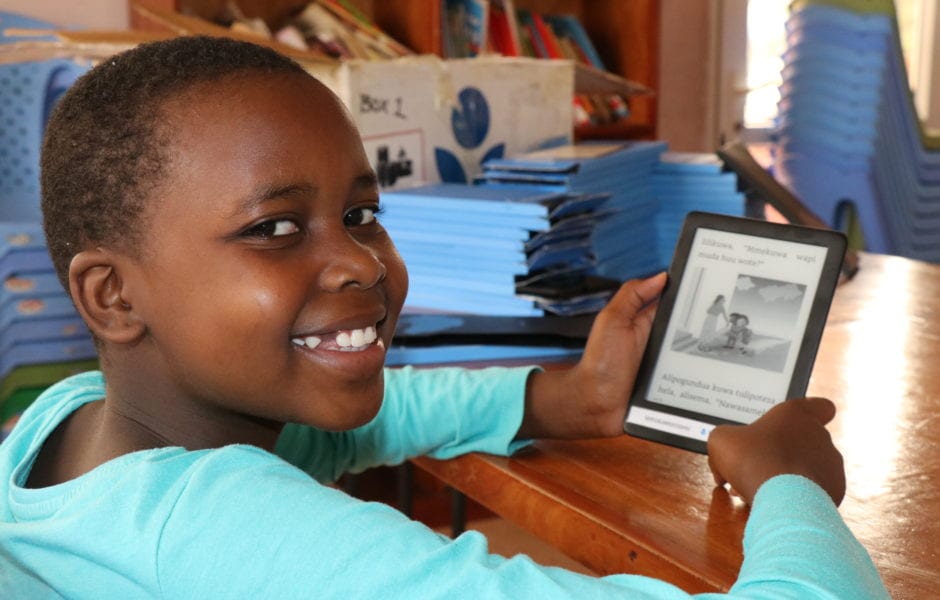Elimu operates on the premise that every child needs at least one person who really believes in them. This is the key to helping them find hope for their future.
Elimu, whose name means “education” in Swahili, is a vibrant African charity located in Malindi, Kenya. They come alongside hundreds of youth each year through their three pillars— education, entrepreneurship and empowerment.
According to Unicef, more than 1.2 million primary-school-age children in Kenya do not attend school. Elimu wants to change this picture. Since their start in 2006, their goal has been to empower Kenyan children and their families with confidence, skills and self-awareness in order to break the cycle of poverty, instill independence, and build thriving communities.
They have five key programs. The Learning Centre is a skills-building and tutoring hub to improve students’ performance in the public-school system. Stay in School funds much-needed school supplies for vulnerable children and youth living in poverty. The Heri Sewing Project equips young women from vulnerable backgrounds with sewing skills for income generation. Nyumbani Kwetu Home provides regular food, nutrition, health care, and education to orphaned children at risk of drop-out. Upendo is a school located in Sabaki Village that Elimu monitors and develops through training and management support. In addition to these programs, Elimu has a Cisco Networking Academy, which helps youth acquire IT skills and hands-on experience for future work in the job market. It is the only one of its kind in the County.
There are countless examples of students who have benefited from both the belonging and educational support that Elimu provides. One student, Ibrahim, says, “I am grateful that Elimu saw my passion for art and walked me through my education journey, primary, secondary and even college. I was sponsored and am glad that I went to college to pursue my dream career.”
When COVID-19 hit Kenya in March, Elimu was forced to temporarily close the doors of the Learning Centre. Like many other charities, they had to ask how they would carry out their mission in the midst of a global pandemic. How do you effectively transition to remote learning in a Kenyan context? What does it look like to serve and equip Malindian youth, and support their parents, during a strict lockdown? In the words of Nina Chung, Founder and President of Elimu, “this stage required a paradigm-shift in our thinking and our approach.”
One of the most extraordinary ways they have pivoted to serve the community in the midst of COVID-19, is boosting the signal from their local server out to homes in the community. This allows students and their families to access educational materials via intranet without cost. This project is called “Kolibri”.
“Kolibri is an offline intranet system which means it does not require internet and makes educational content accessible by any Wifi-enabled device, at no cost to the user. A successful pilot test has been implemented sending the signal up to 2 km away from Elimu Resource Centre (ERC). We are now working on setting up a demonstration of the system to relevant potential funding partners and the government. It is our hope that we can succeed in boosting the Kolibri signal a 5 km distance from the ERC and will then set up our sponsored students to do their home studies via Kolibri” - Kamotho, Co-Founder & C.E.O
This is just one example of the creative ways Elimu’s team is responding to COVID-19.
At Nyumbani Kwetu Home, the kids have cleared land and put up a “nursery” to grow seedlings for a kitchen garden. This will be helpful after a lockdown in case food shortages or price hikes occur. For those children, Elimu has implemented a home-schooling approach, being in regular contact by phone with the parents. They have also provided e-readers to the high schoolers and shared relevant digital resources on EdTech platforms. They have also offered families a small stipend to help them stock up on food.
The Heri Sewing Project provided more than 2,000 protective face masks to the Ministry of Health. In addition to this, they had an innovative idea to engage their sewing students with income generating projects. After four months of hard work, they produced 100 Kenyan-inspired rag dolls that could tell the story of their struggles while raising money for Elimu—all in the midst of lockdown.
Elimu represents an innovative charity that has leaned into the challenges of COVID-19 in order to provide the best care possible to their community. We are so grateful to have partners like Elimu who, despite difficult circumstances, are always committed to serving those who need it most.
If you are interested in knowing more about Elimu or if you want to help them through the unexpected COVID-19 challenges, you can visit their website. If you are interested in reading more stories from students, you can browse their magazines.
